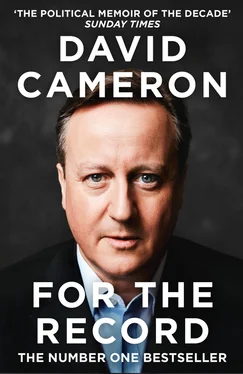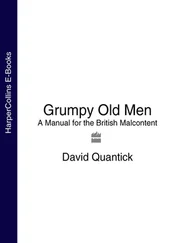The Brussels officialdom would have cried ‘more opt-outs, more special treatment’ and thrown up their hands in despair. The harder end of UK Eurosceptics would have argued, once more, that the inevitable moment for UK departure had arrived.
I am sure that we could have found another UK ‘special status’ solution, but the legal arrangements and parliamentary scrutiny (and both would be necessary) would have brought forth the arguments about the UK’s position in the EU all over again. Those who believe that the reform and referendum debate in the run-up to 2016 was an unnecessary confection cooked up for political reasons are profoundly wrong. Staying in the single market while remaining out of the single currency was going to require major reform if it was to be sustainable, even in the relatively short term. Without it the question of membership would have come back again and again, leading eventually, inevitably, to a referendum.
My greatest regret remains that we couldn’t continue to find a special status that kept us in those parts of the EU that were essential to our national interest while staying out of the parts that were delivering ‘ever closer union’. John Major’s single currency and Social Chapter opt-outs, Tony Blair’s carve-outs from Justice and Home Affairs, and the decision by all recent UK prime ministers to stay out of the Schengen no-borders scheme have all been part of the same British picture.
I added opt-outs from bailing out Eurozone countries and Eurozone banks while ensuring we weren’t part of schemes to redistribute EU migrants who had already arrived in Europe. My renegotiation would have added, among other things, opting out of ‘ever closer union’ altogether, with safeguards for the pound and our position in the single market, while placing tough welfare limits on EU migrants.
All these opt-outs seem messy and complicated when set against the apparent simplicities of either full-on EU solidarity or ‘taking back control’. The pragmatic, practical path is often the hardest to take …
Of course, the pandemic puts not just multilateralism but bilateralism into the spotlight – and one relationship in particular.
I staked a lot on forging better relations with China. I believed that the more we brought the country into the rules-based international system, by trading and engaging with it, the more we could encourage it to play by those rules.
It would be tempting to say that, given China’s slowness to report what was happening in Wuhan and the fake news published since, cooperation is futile, even wrong. I am not stubborn or dogmatic in my thinking about China. Indeed, I had already modified my views on the country between my early years as a politician and the period I spent writing this book; as I describe later on, while I believe a more democratic path for China is inherently desirable, I no longer believe it is inevitable.
But then I ask myself: do I really believe that it is better to shun China? Will it cooperate with us more if we condemn it, as the US president has? By disengaging, surely we would be playing into China’s hands. After all, that would create a vacuum. The danger is that as the US stops funding the WHO, China will be seen as more of a leader. What we need is engagement combined with hard-headed realism. It is that pragmatic middle ground – so often advocated in these pages, so often a vacant space in these troubled times – once again.
Here, with China, the problems and advantages of globalisation have been encapsulated. We have become so entwined with this country that we have been both crippled by a disease that originated there and subsequently dependent on its supply chains for the medical equipment we need to fight coronavirus.
The undeniable pre-eminence of this one-party state is frequently cited as proof for the claim that liberal democracy is dying on its feet. Yet I conclude in this book that the opposite is true, that the desire for freedom is too strong and the success of open markets and open political systems too clear for the world to retreat from it. Has the arrival of the pandemic caused me to revise that? Hasn’t the coronavirus response shown autocrats to be the new role models? The argument goes that they are investing in security (when we liberal democracies aren’t), building massive infrastructure (when we aren’t), and thinking strategically and long term (ditto). Aren’t they better at dealing with this sort of crisis?
It’s true that the strongmen have been emboldened by the pandemic. Xi has used it to grab more power. Trump has used it as an excuse to enact policies and make statements that even he wouldn’t normally get away with. Yet I maintain that populists are the worst leaders in a global crisis. Presidents Trump and Bolsonaro do a fine job of proving this theory. What’s more, the countries that have dealt best with COVID-19 – Taiwan, Singapore, South Korea, New Zealand – are all democracies. They have met it with leadership, boldness and clear communication with electorates. That is something we as fellow democracies are better placed to emulate. (One thing we can also note from the public response to COVID is that our assumptions about what people are prepared to sacrifice in the short term for a longer-term benefit might have been wrong.)
However, we cannot disregard the populists altogether. They have been elected for a reason. The grievances they feed off are real. Too many people have been left behind economically by globalisation, too many communities have been changed too rapidly. Immigration has been too high in too many places for too long. Meanwhile many of the multilateral organisations feel domineering yet remote. I outline in the chapters that follow how I spent a lot of time trying to deal with those things – to give our people the skills they need in the new economy; to rebalance our economy between our regions; to get a better sense of control and fairness in immigration; to reform institutions like the EU. I’ll admit now that we didn’t go far enough. But at the same time I would say we – the governments I led, and subsequent ones – must have been doing something right, since there is a case for arguing that Britain is the only country in Europe that hasn’t experienced the long-term, far-left and hard-right populist insurgencies that we’ve seen across the rest of the continent.
That balance between heeding grievances and pushing for reform must also apply to two other issues that have gained more traction since this book first came out.
The first is climate change. We are making huge progress on halting this. As I frequently point out to my teenage daughter, an enthusiastic activist, the UK’s carbon emissions are not just lower than they were in 1994, they are lower than in 1894. But the Greta Thunbergs and Extinction Rebellions of this world would tell a different story. They need to be careful they don’t mirror the populists, meeting a very real grievance (the warming of our planet) with hyperbole (‘the world will end in twenty years’), impossible solutions (‘we must end all carbon emissions tomorrow’) and tribalism (climate action is something for only certain people who subscribe to certain beliefs). None of that will lead to the rational, reasonable, open, pragmatic approach the climate crisis so obviously requires. Again, it is that approach that is needed to address so many of the problems of the day and that brand of politics that I advocate throughout this book.
The second issue is racism. The death of George Floyd in America rightly sparked a global outcry, not just against the violent racism displayed by police in Minneapolis, but against racism at every level, both outward and overt, insidious and institutional. Reforming stop and search, introducing name-blind job applications and forming the most diverse Cabinet in history were some small steps the governments I led took towards righting these wrongs. Free schools, the Pupil Premium, Start-Up Loans, Help to Buy and National Citizen Service were designed to lift everyone up, but had a disproportionate effect on minorities. Of course, there is much, much more to do. But, as with climate change, we must be careful not to undermine a genuine, heinous problem – the quality of people’s lives being dictated by the colour of their skin – by obsessing over symbols, playing identity politics and stoking culture wars. Those things not only distract. They actually entrench division – even create division – when we should be building a society rooted in the fact that, as the late MP Jo Cox is quoted as saying on page 675, ‘we are far more united and have far more in common with each other than things that divide us’.
Читать дальше












